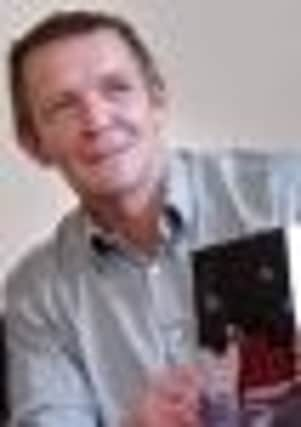Lack of beds hinders community workers helping young people ‘exiled’ by terrorists


Michael Doherty, a well-known mediator and negotiator, spoke at the launch of a new book highlighting the problems posed by vigilante groups in Northern Ireland and communities’ fears around issues such as drugs.
Mr Doherty said the the organisation behind the threats in Londonderry was not open to mediation as such, and that the best community workers coulddo was help to save the lives of the victims of threats.
Advertisement
Hide AdAdvertisement
Hide AdHe said that, in order to do that, he worked with various agencies, including housing associations. And he revealed that, while quite a number of people have been ordered to leave Londonderry,the problem is exacerbated by the lack of available accommodation to house people in emergencies.
In fact, he said there is a total of just 11 “overnight beds” in the whole of Co Donegal.
Launched in Londonderry today (Thursday), ‘No Dope Here? Anti-Drugs Vigilantism in Northern Ireland’, by journalist and author, John Lindsay, draws on a wide range of sources including the author’s interviews with former paramilitaries, both Loyalist and Republican, former drug users and suppliers, victims of paramilitary shootings, beatings and exilings and their families, politicians, health professionals, academics, police and community workers.
Introducing the author, Maureen Hetherington, of the Junction, described the work as “hugely courageous”, and said that Ireland, going back to Celtic times, had been a place that espoused the ethos of ‘sanctuary’.
Advertisement
Hide AdAdvertisement
Hide AdBut pointing out that the North West region would wish to help others, she asked: “If we can’t look after our own young people, how can we look after others?”
Eamon Deane, of Holywell Trust, said the book informed readers and “will give those who make policy information on which to make policies”, within government, the PSNI, health boards and “groups of neighbours”.
Describing the book as “really, really significant”, he added: “It’s amazing what one determined, committed passionate person can do, despite everybody telling him; ‘Don’t go near that’. Yes! Publications, Holywell Trust and The Junction are pleased to be associated with this book.”
As well as recording the activities of paramilitaries throughout Northern Ireland over recent decades, the bookdeals with numerous incidents in the North West, including the vicious campaign waged by Republican Action Against Drugs (RAAD), before it and the Real IRA morphed earlier this year into the new ‘IRA’. When the book was first completed, Mr Lindsay had predicted that RAAD and the Real IRA had become so close that they would merged, but the book had to be re-drafted when the merger was announced before it could be published.
Advertisement
Hide AdAdvertisement
Hide AdThe book’s comprehensive contents include the murder of Waterside man Andy Allen in Buncrana in February which was later claimed by RAAD. Incidentally, around the same time as the murder, there were also attacks on bookies’ premises in Londonderry, which were blamed on the Real IRA.
As well as addressing the issue of communities’ attitudes to the activities of such groups, the new book offers a fascinating insight into how that particular terror organisation (RAAD)used the media as a tool in a bid to intensify its grip on communities across the city.
As well as regularly issuing statements of intent to commit violence, RAAD also tried to portray itself as having great ‘intelligence’ on its victims by forcing some to make ‘public confessions’ through the media as a means of having threats to their lives lifted, according to the book.
As part of the ‘confession’ the victim had to praise RAAD’s methods. In his book, Mr Lindsay said he accompanied one man to a media outlet after he’d been told by a mediator that the terrorists wanted him to make such a a public ‘confession’.
Advertisement
Hide AdAdvertisement
Hide AdAt the launch today, Mr Lindsay said he hoped the book would help inform opinion and encourage a number of bodies to review their attitudes towards how the drugs issue can be dealt with.
He also said police need to adopt different attitudes, while there was a challenge to the media with regards to “disseminating propaganda from terrorists”.
John Lindsay’s ‘No Dope Here?’ chronicles anti-drug campaigns by paramilitaries from the Provisional IRA in the 1970s through to DAAD, the UVF and the Red Hand Commandoes in the 1990s; it concludes with an examination of the activities of RAAD in Londonderry over the past decade.
Mr. Lindsay, who was born in North Wales moved to Ireland in the 80s says he was immediately struck by “the draconian attitudes and actions toward drug use by reactionary and self confessed revolutionary movements”. Having begun the book it was, he said: “an uncanny co-incidence that RAAD simultaneously commenced its unprecendented shooting spree at what was a time of peace in Ireland”.
RAAD also had an unprecedented penchant for self-publicity which Mr Linday’s book analyses in detail.
It is available from Yes! Publications and Easons, priced at £12.99